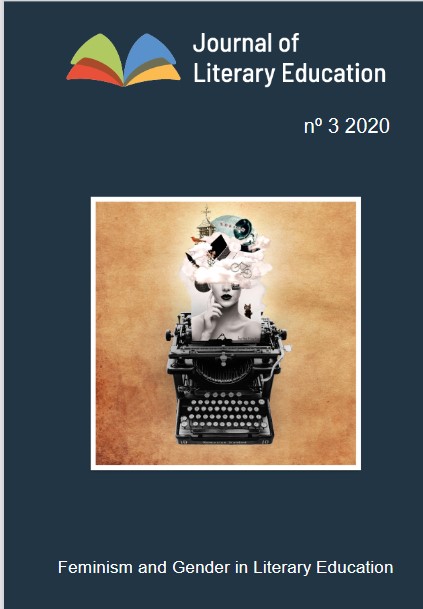Gender in Literature. Woman's Position from traditional to modern society
DOI:
https://doi.org/10.7203/JLE.3.17340 Abstract
Abstract
The remarkable influence of gender studies in recent years on the Greek educational system has inevitably led to the integration of a multi-focal thematic section entitled “Gender in Literature” in the new Lyceum curriculum. This section truly captures the interest of adolescents, as it stimulates the approach of literary texts and promotes constructive discussions that often lead to further enjoyment of reading. On this base a collaboration between University of Athens and Anavryta Model Lyceum was carried out in Literature class in both institutions. This article aims to present the main stages of this cooperation on the subject of “Literary Representations of Women’s roles from traditional to modern society”, as the institutional framework for teaching literature clearly supports the historicity of texts. Besides explaining the rationale behind this educational action, we are proposing a selection of literary texts that were used in class and presenting the objectives and didactic methods practiced, the type of tasks assigned to the pupils as well as the skills developed by them. The paper insists on certain texts that are particularly valuable for this approach and offers examples of taking advantage of contextual elements. Finally, we are showing how this collaboration became a real example of extroversion for both institutions and we are attempting a comprehensive evaluation of this project and its impact within the students’ and teachers’ community.
 Downloads
Downloads
Downloads
Published
-
Abstract643
-
PDF562
Issue
Section
License
![]()
This work is licensed under a Creative Commons Attribution-NonCommercial-NoDerivatives 4.0 International License.
Authors who publish with this journal agree to the following terms: Authors retain copyright and grant the journal right of first publication with the work simultaneously licensed under a Creative Commons Attribution License that allows others to share the work with an acknowledgement of the work's authorship and initial publication in this journal. Authors are able to enter into separate, additional contractual arrangements for the non-exclusive distribution of the journal's published version of the work (e.g., post it to an institutional repository or publish it in a book), with an acknowledgement of its initial publication in this journal. Authors are permitted and encouraged to post their work online (e.g., in institutional repositories or on their website) prior to and during the submission process, as it can lead to productive exchanges, as well as earlier and greater citation of published work (See The Effect of Open Access).



